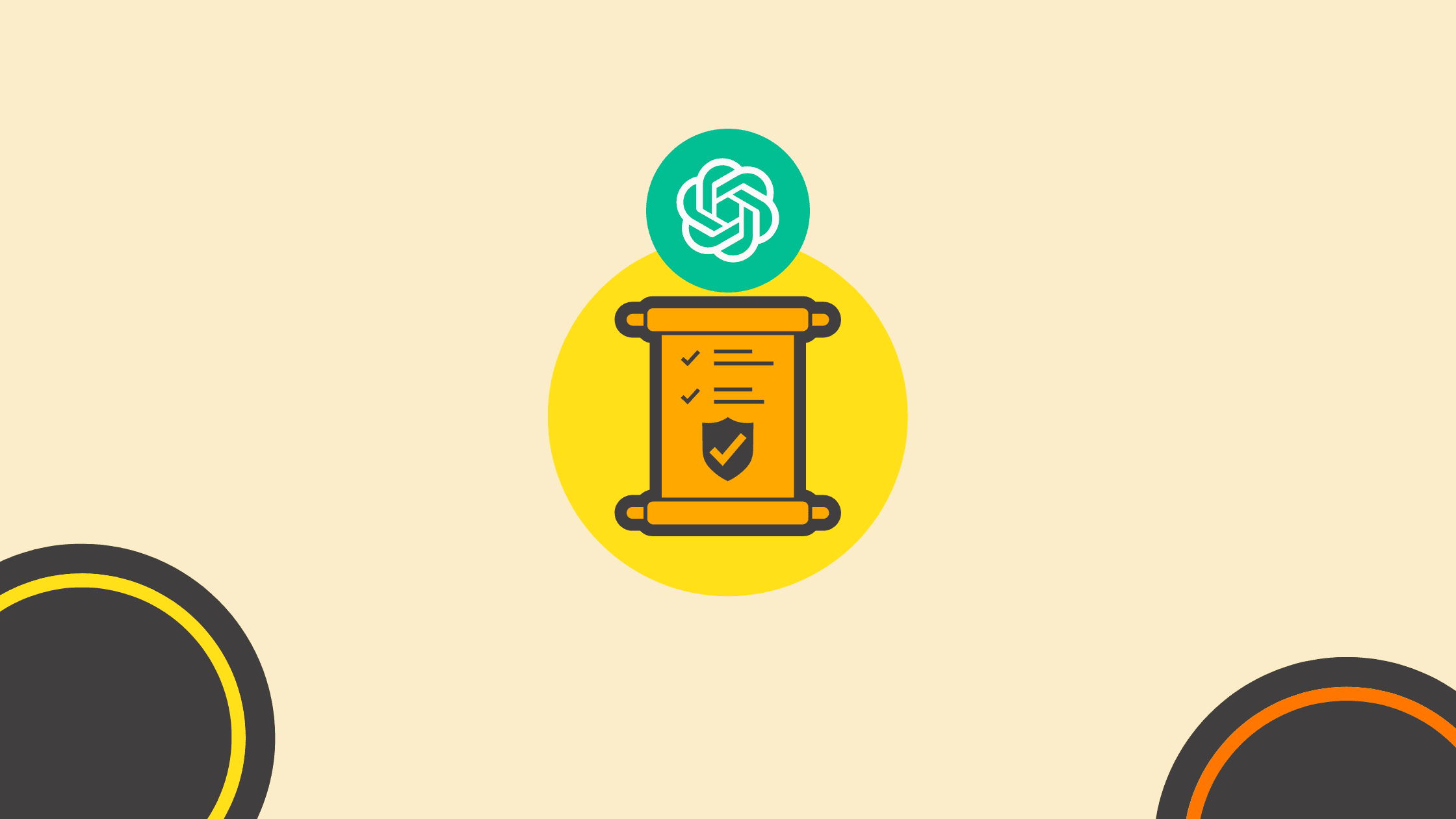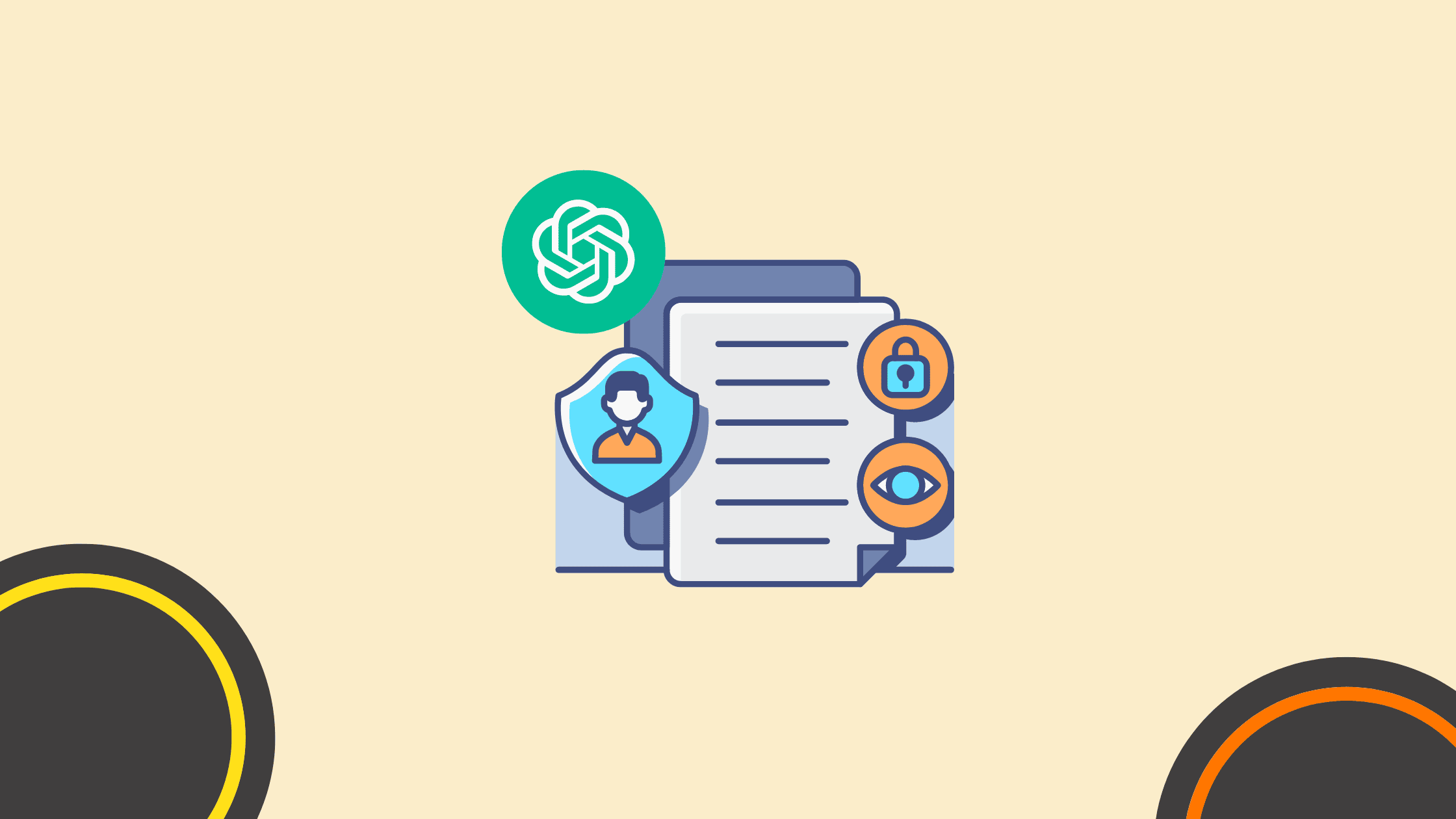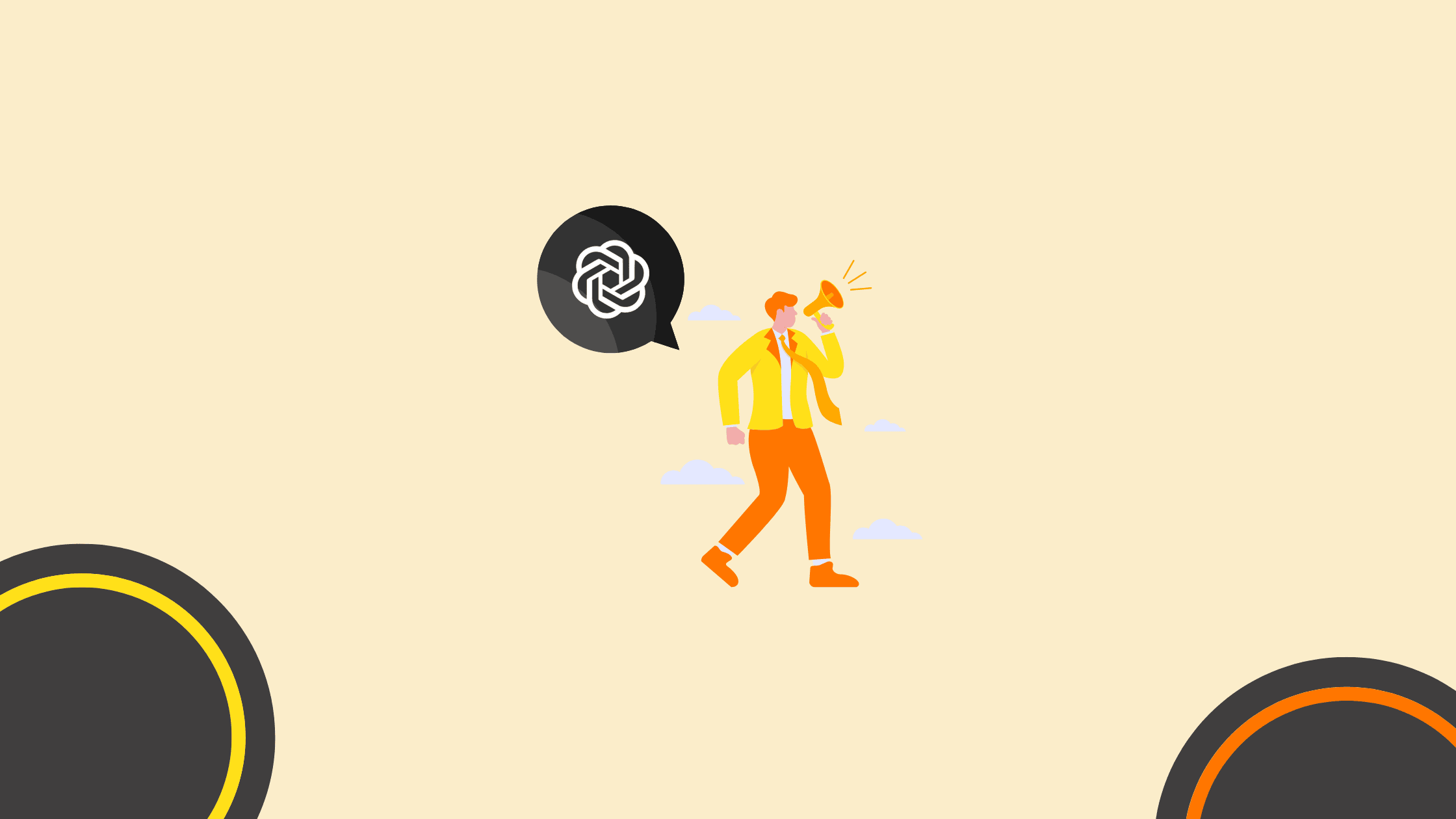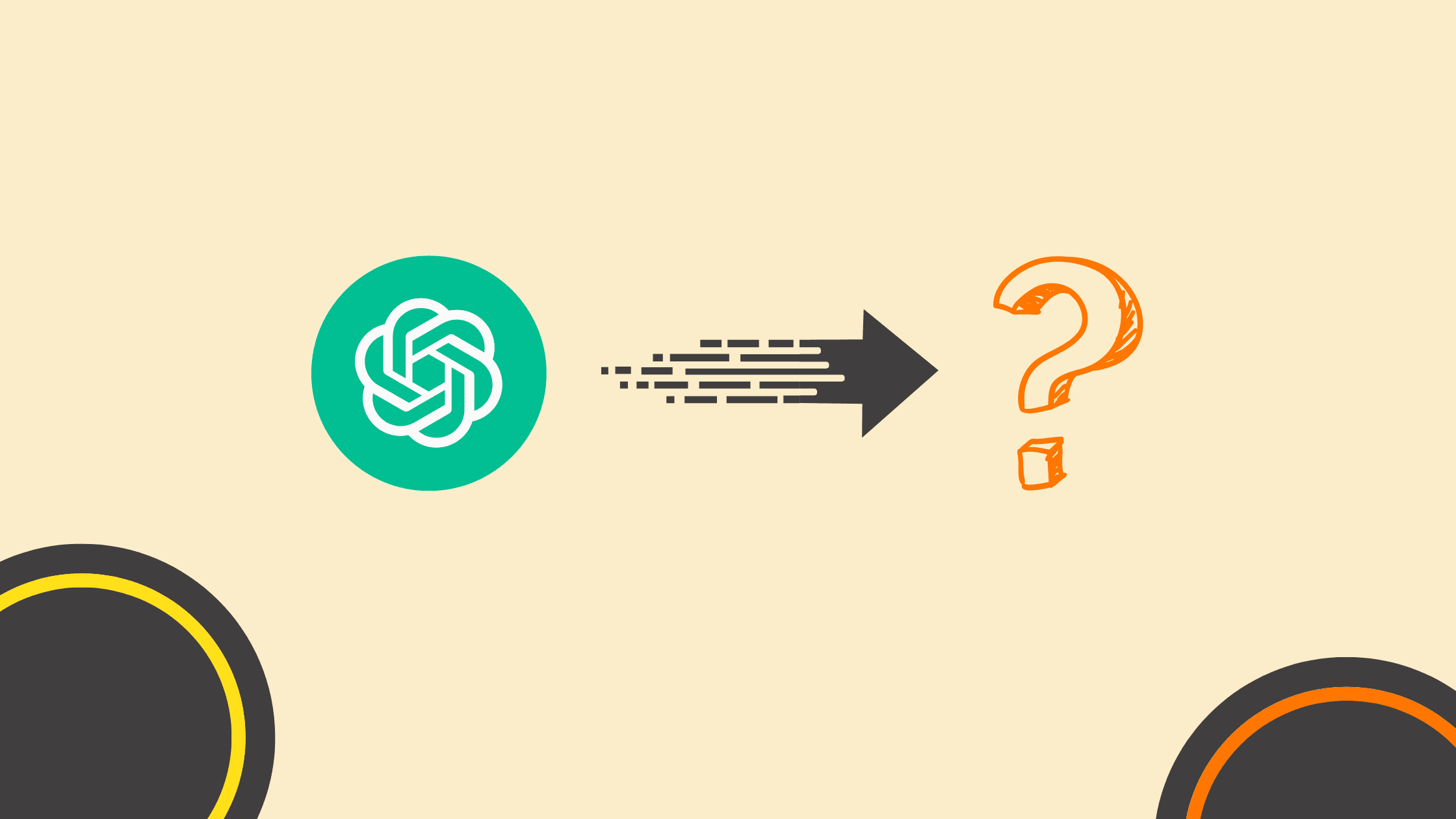A Guide For Marketers: Does ChatGPT Violate Compliance Rules and Policies
Understand what happens when you enter your data into ChatGPT
The fuss around artificial intelligence(AI) has recently been the bone of contention. In fact, AI is disrupting virtually all sectors. Imagine if we get to a point where AI does all your tasks for you. Funny right?
And you’d ask–what would be left for me to do? Sure, you’d still have to feed yourself and, perhaps, take your bath yourself. Who assigns those to AI? We’re at such an exciting point in the world, and one of the generative AI tools making rounds recently is ChatGPT.
It’s all over the news. ChatGPT provides answers to your queries. Talk of a tool for writing; it is also helpful for writing marketing copy, and computer codes.
With further advancements and upgrades, it can generate text, images, and other forms of content that are more or less the same as human-generated content.
Many experts believe ChatGPT is non-compliant and violates compliance rules and policies. Could this be true? Let’s take a ride into the full details.
Related: How to Build your Custom ChatGPT
In this article
Does ChatGPT Violate Compliance Rules and Policies?

No doubt, ChatGPT is an impressive technology. Talk of an incredible tool to process natural language. It is reliable to automate diverse types of communication.
As much as ChatGPT offers tremendous benefits, its advent has also spurred concerns around it, and that’s normal with any new technology. Questions surrounding its safety and legality exist, particularly on data privacy and intellectual property rights.
ChatGPT’s company, OpenAI, is located in California. As a matter of fact, it recognizes the California Consumer Privacy Act(CCPA) on its privacy policy page. OpenAI states that California residents have “the right to know the Personal information it collects and how it is used and disclosed.
They also have the right to request deletion of their personal information and to be free from discrimination relating to exercising any privacy right.” Here are the questions on the lips of users.
Who gets the Copyright for content generated by ChatGPT?

OpenAI’s ChatGPT has questioned intellectual property (IP) law. Questions like–who owns the content generated by ChatGPT, and how should the content be managed and protected?
Should ChatGPT be tagged as the original content creator for copyright purposes, and should it be entitled to the same IP protections as human creators? To further clarify this stance, ChatGPT itself has this to say:
“As an AI language model, I don’t have legal ownership or copyrights over the content I generate. The right of the content I produce would depend on the specific use case and context in which it was created.
In general, the ownership of the content is determined by the person or organization who created the input prompt or provided the data to generate the content.
Additionally, the legal implications of using the content I generate will depend on the specific laws and regulations in the relevant jurisdiction. It is essential to consult a legal expert for advice on any particular legal issues related to content generated by AI models like me.”
However, Experts in the legal domain have come out to say ChatGPT, as a generative AI, is capable of copyright infringement and has the potential to face legal challenges. On the other hand, other experts maintain that anything created by generative AI systems is legally above any lawsuit.
Should Privacy Policy be an issue?

Think about this–each time you insert prompts for ChatGPT to provide answers to, you hand over sensitive information to the chatbox. You’re taking a huge risk there. Your inputs are now part of ChatGPT’s database.
Moreover, your prompts can also be used to further train the tool and guide similar prompts from other persons. According to ChatGPT’s privacy policy, it stores users’ IP addresses, browser types and settings, and data on users’ interactions with the tool.
As part of its policies, OpenAI states that it could share users’ personal information with unspecified third parties without informing them, so it can meet its business objectives.
Suppose you have confidential business information restricting usage and insert such information into ChatGPT. In that case, the restrictions could be violated by a third party.
Trade secret laws are simply to be kept as secrets. However, inserting such information into ChatGPT may expose and weaken your company’s position.
Implications for Marketers

Suppose, as a company, your customers’ interaction with ChatGPT needs to be made made known. Say, one of your clients receives a document generated by ChatGPT from your company, you risk a chance to get claims of unfair or deceptive practices under state or federal law.
However, this is dependent on the circumstance. Your customers could be enraged if they paid for the content and later discovered ChatGPT generated it.
As a marketer, consider how much you want to use ChatGPT in connection to your jobs. Weigh the efficiency you can attain using ChatGPT to perform tasks such as writing emails, routine letters, or generating simple reports.
One thing is sure–ChatGPT is not going away anytime soon. In fact, we anticipate its upgrades as time goes on. Marketers will need to address its use because subsequent versions will get better. Despite its risks, marketers can also leverage its benefits.
Again, marketers must be aware of the terms and conditions set by OpenAI, take the necessary steps to protect data privacy, and avoid using the tool for illegal activities or infringing on intellectual property rights.
ChatGPT—what’s next?

ChatGPT has proven to be a revolutionary tool. You’d agree that with it, we now have the features of a search engine in a chatbot. This will change the face of so many things we do.
Even while it is clear that OpenAI is a private, profit-making company and does not necessarily have the interests of the larger society at heart, it is, therefore, imperative that the compliance policies and privacy risks attached to ChatGPT serve as warnings. Marketers should be careful about the information they share in its chatbox.
FAQ
What is ChatGPT?
ChatGPT is an AI-powered chatbot developed by OpenAI that uses natural language processing (NLP) techniques to generate human-like text-based responses in conversations.
How does ChatGPT work?
ChatGPT works by analyzing input text, understanding its context, and generating relevant and coherent responses based on its vast training data and language models.
What are the key features of ChatGPT?
Key features of ChatGPT include its ability to engage in natural conversations, understand context, generate diverse responses, and adapt to various topics and styles of communication.
Can ChatGPT be used for customer support?
Yes, ChatGPT can be used for customer support by providing instant responses to customer queries, handling frequently asked questions, and offering personalized assistance.
Is ChatGPT suitable for content generation?
Yes, ChatGPT can generate content such as articles, product descriptions, emails, and social media posts based on provided prompts, making it a valuable tool for content creators.
How accurate are ChatGPT’s responses?
ChatGPT’s responses are generally accurate and contextually relevant, but its accuracy may vary depending on the complexity of the query and the quality of its training data.
Can ChatGPT be integrated into websites and applications?
Yes, ChatGPT can be integrated into websites and applications using APIs, allowing developers to create chatbots, virtual assistants, and other conversational interfaces.
What are some potential use cases for ChatGPT?
Potential use cases for ChatGPT include virtual assistants, automated customer support, content creation, language translation, and conversational AI in various industries.
How does ChatGPT handle sensitive or confidential information?
ChatGPT is designed to prioritize user privacy and data security. It does not store conversations unless explicitly enabled by the user and adheres to strict privacy policies.
What sets ChatGPT apart from other chatbot platforms?
ChatGPT stands out for its advanced natural language understanding capabilities, ability to generate coherent and contextually relevant responses, and support for a wide range of use cases and industries.
Can ChatGPT be trained for specific domains or industries?
Yes, ChatGPT can be fine-tuned and customized with additional training data to specialize in specific domains or industries, enabling more accurate and contextually relevant responses.
What languages does ChatGPT support?
ChatGPT supports multiple languages, including English, Spanish, French, German, Chinese, and many others, making it accessible to a global audience.
Is ChatGPT capable of understanding slang and informal language?
Yes, ChatGPT is proficient in understanding slang, colloquialisms, and informal language, allowing for more natural and engaging conversations with users.
How does ChatGPT handle ambiguous or unclear inputs?
ChatGPT employs context-awareness and probabilistic modeling techniques to interpret ambiguous inputs and generate responses that best fit the context of the conversation.
Can ChatGPT generate code or programming scripts?
Yes, ChatGPT can generate code snippets and programming scripts based on provided prompts, making it a valuable tool for developers seeking quick solutions or code examples.
Does ChatGPT have the ability to learn from user interactions?
ChatGPT can learn from user interactions to some extent, but its learning capabilities are primarily based on pre-existing training data and continual updates from OpenAI.
How does ChatGPT ensure ethical usage and prevent harmful content generation?
ChatGPT is designed with safeguards to detect and filter out harmful or inappropriate content, and its usage is governed by ethical guidelines to promote responsible AI deployment.
Can ChatGPT understand and respond to multiple questions in a single input?
Yes, ChatGPT is capable of parsing and responding to multiple questions or queries within a single input, providing cohesive and relevant responses to each component.
Are there any limitations to ChatGPT’s conversational abilities?
While ChatGPT excels at natural language understanding and generation, it may occasionally produce nonsensical or irrelevant responses, especially when faced with highly complex or abstract topics.
How can businesses leverage ChatGPT to enhance customer engagement and satisfaction?
Businesses can leverage ChatGPT to provide personalized recommendations, offer real-time assistance, and automate routine tasks, ultimately improving customer engagement and satisfaction levels.
Author’s Bio
 Ale Oluwatobi Emmanuel is a freelance SEO content writer for B2B SaaS and technology brands with several published by-lines on notable tech websites.
Ale Oluwatobi Emmanuel is a freelance SEO content writer for B2B SaaS and technology brands with several published by-lines on notable tech websites.
Linkedin–Ale Oluwatobi E’
Twitter–@_contentgeek
Master the Art of Video Marketing
AI-Powered Tools to Ideate, Optimize, and Amplify!
- Spark Creativity: Unleash the most effective video ideas, scripts, and engaging hooks with our AI Generators.
- Optimize Instantly: Elevate your YouTube presence by optimizing video Titles, Descriptions, and Tags in seconds.
- Amplify Your Reach: Effortlessly craft social media, email, and ad copy to maximize your video’s impact.